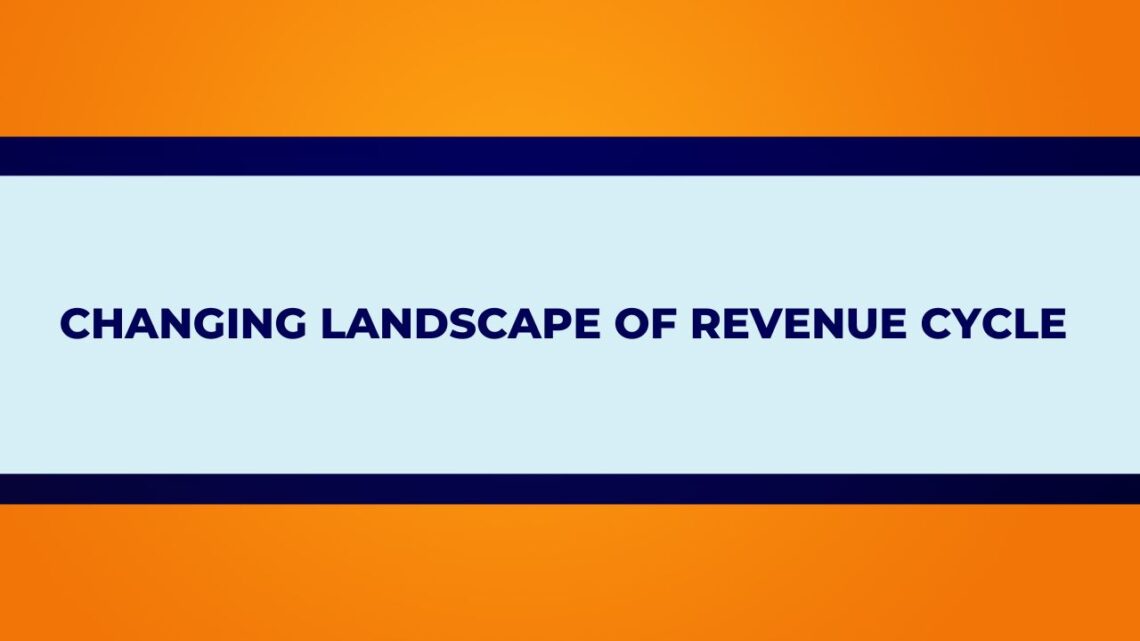Recent advancement in the overall sphere of the healthcare practices has brought revolution in the revenue cycle management , and make it even more important for the the healthcare providers to manage the revenue cycle It includes:
Making new rules like the Affordable Care Act and HIPAA has made billing and collecting money more complicated. This means medical practices need to follow rules more carefully.
Now, healthcare is more focused on giving good care instead of just treating sickness. This means getting paid depends on giving good care and doing billing correctly.
Many people now have to pay more money for their healthcare because of high-deductible plans. So, medical practices need to be better at billing and collecting revenue from patients.
What Is Revenue Cycle Management?
Revenue cycle management (RCM) refers to the comprehensive process of managing financial transactions, data, and communication within the healthcare system, from the initial patient encounter and registration through the final payment of a balance. It covers various stages such as patient registration, insurance verification, claims processing, payment collection, and financial reporting to optimize the revenue generation of healthcare providers.
By optimizing revenue collection and minimizing denials, A billing company helps healthcare organizations optimize staff performance, improve cash flow, and enhance patient experience.
Additionally, RCM is indispensable for preventing revenue loss, reducing costs, and ensuring compliance with regulatory requirements. Any healthcare organization that fails to implement an effective RCM strategy risks losing revenue, incurring unnecessary costs, and compromising the quality of patient care.
Revenue Cycle Management (RCM) software is designed to streamline and optimize administrative and clinical functions within a healthcare organization. It plays a crucial role in improving the financial health of healthcare providers by sustaining practice operations, minimizing payment delays, and enhancing operational efficiency in delivering healthcare services.
Role Of Revenue Cycle Management Services
Discover how Revenue Cycle Management (RCM) can help your practice in many ways.
- Better Revenue management: RCM helps practices get paid faster, so they have more money available.
- Maximum Reimbursement: RCM makes sure claims are handled correctly, so practices get paid more often for the work they do.
- Satisfied Patients: With fewer billing mistakes and easier payments, patients have a better experience.
- Following Rules: RCM helps practices follow the rules, so they don’t get in trouble with the law or have to pay fines.
- Saving Time: RCM automates tasks, so practices can save time and focus on patients.
- Better Information: RCM helps organize data better, so practices can understand how they’re doing and make better choices.
Challenges In Revenue Cycle Management
When it comes to getting paid for services already given, it sounds easy, but it’s not always simple for practices. There are real challenges in managing the money side of healthcare in the U.S.
The rules for healthcare and how providers get paid keep changing. This makes it hard for practices to keep up. Small practices might find it especially tough to understand and follow all the changes.
Patients are paying more of their healthcare bills now. Practices need to find a way to ask for this money without bothering patients too much. They should educate both staff and patients about payments and offer different ways to pay.
If a practice doesn’t have a way to watch claims, they might not notice if there’s a problem. This could mean losing money.
It’s a big problem when claims get denied. Each denial means there’s a chance the practice won’t get paid. Practices lose a lot of money this way. They need a plan to follow up with insurance and manage what’s owed.
Everyone who deals with payments needs to know what they’re doing. Training takes time and money, but it’s worth it when staff can do their jobs right.
Conclusion
Healthcare rules, how much money gets paid back, and tech are changing fast. This makes it hard for healthcare groups to stay financially strong. Having a good plan to manage money can make a big difference. It can help some groups survive while others do well.
Groups that use technology to do tasks faster have an edge. They don’t waste time on things that don’t bring in money quickly. They get paid as much as possible for the work they do, without waiting too long.
FAQs
Are medical billing and coding alike?
Let’s find out.
Medical coding turns medical procedures into a language everyone, like healthcare providers and insurance companies, can understand. Meanwhile, medical billing is about sending bills and getting paid for medical services.
What’s billing all about?
Billing means sending customers or clients a bill for things they bought or services they got. It’s like asking them to pay for what they got. The aim of billing is to make sure people pay for what they got on time.





